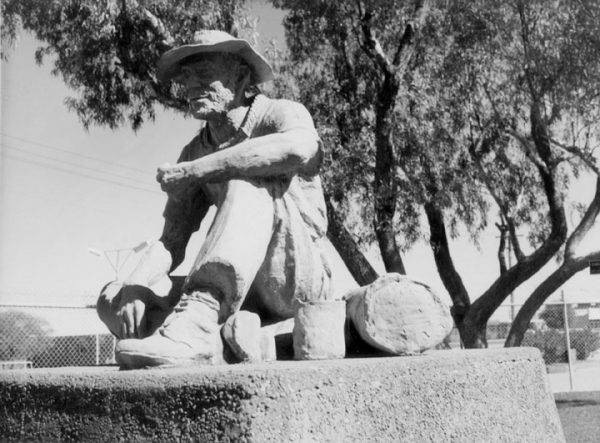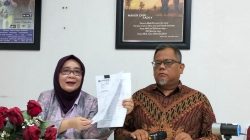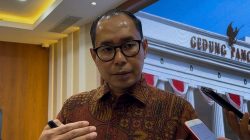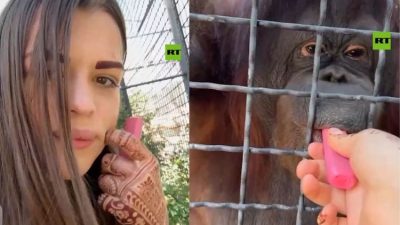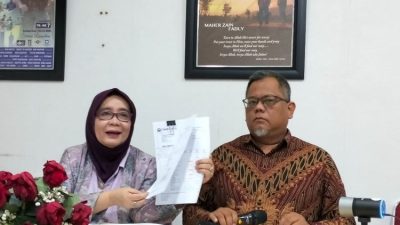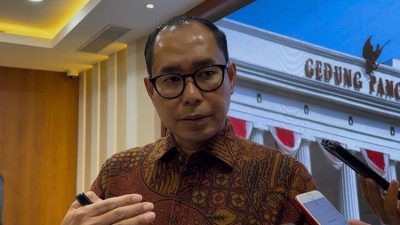A fresh wave of controversy is sweeping through Ondo State following moves by the state government to initiate a coroner’s inquest into the death of former Governor Rotimi Akeredolu.
The development, according to the state government, was necessitated by a petition submitted by unnamed individuals and groups, both within and outside the state.
The Attorney-General and Commissioner for Justice, Kayode Ajulo, recently revealed that several petitions were submitted by unnamed individuals and groups calling for an official probe into the circumstances surrounding the former governor’s death.
According to Ajulo, the petitioners implicated the late governor’s widow, Betty Akeredolu, and others in the circumstances surrounding his death.
However, the request for a coroner’s inquest into Akeredolu’s death has sparked widespread criticism and concern among stakeholders and residents of the state, igniting intense debate across political, legal, and civic circles.
Critics of the planned inquest say the push for a fresh investigation is unnecessary, insensitive, and potentially disruptive to the peace of the state.
ALSO READ: Nigeria must restrategise to curb brain drain in health sector – Mimiko
According to them, reopening the circumstances surrounding former Governor Akeredolu’s death—despite his well-publicised battle with prostate cancer—could inflame tensions and deepen political divisions in the state.
They argue that rather than promoting justice, the move could be interpreted as a politically motivated witch-hunt, especially given its timing and the parties allegedly implicated.
For many, the idea of a coroner’s inquest possibly leading to the exhumation of the former governor’s remains is viewed not only as a violation of cultural sensitivities but also as a threat to the unity of the state.
Former Minister of State for Transportation, Prince Ademola Adegoroye, described the development as “unthinkable,” warning that exhuming the late governor’s body could spark public outrage and stain the image of the current administration.
“Akeredolu’s cause of death was never in doubt. This whole move smells of mischief and must be halted before it deepens divisions in the state,” Adegoroye cautioned.
While acknowledging the government’s duty to respond to petitions, Adegoroye advised Governor Lucky Aiyedatiwa to steer clear of what he called a “booby trap” that could backfire on his administration.
“It is unimaginable that the government would consider exhuming the body of a former governor who died after a known battle with cancer. This would amount to desecrating his memory and damaging the image of the state,” Adegoroye said.
Echoing similar sentiments, a former Head of Service in the state, Mr. Ajose Kudehinbu, expressed disbelief over the proposal, questioning the motives behind reopening a settled matter.
“The idea of digging into how Aketi passed on is unfounded. It could only have come from those who disregard the peace and stability of Ondo State. Executive power must be exercised with wisdom and responsibility,” Kudehinbu warned.
Kudehinbu advised the state government to remain focused on developing the state rather than rehashing painful memories that could divide the people.
“The executive power in the state resides only in one person—the governor, nobody else—and he’s the one to give account at the end of the day: for the good times, for the bad times, to posterity. Executive power should neither be diluted nor shared for any reason.
“When I read the story about the plan to investigate how Aketi passed on, I knew it could not be true or could only have come from those who lack regard for the peace and stability of the state, in which the governor is the highest stakeholder.
“As citizens or indigenes, we owe an individual or collective responsibility, as a patriotic duty, to see our state on the path of progress.
“The current administration should prioritise governance, unity, and development rather than revisiting painful episodes that could reopen wounds and polarise the state.”
A prominent Akure-based lawyer, Barrister Sola Ajisafe, condemned the proposed coroner’s inquest, describing it as “an assault on the memory of a respected leader.”
He warned that rather than fostering healing or transparency, the move could deepen existing tensions, particularly in the late Governor Akeredolu’s hometown of Owo.
“The Owo community is known for its complex dynamics, and any actions that might exacerbate tensions should be avoided. I implore you to prioritise caution and consider the long-term implications of your decisions.
“It goes without saying that the Attorney-General revealed his hand by citing the inglorious and despicable action of the late governor’s wife on the demolition of the Cenotaph in Owo as the basis of his current actions, without considering the bigger picture.”
He criticised the Attorney-General’s earlier reference to the controversy surrounding the demolition of the Cenotaph in Owo—an issue allegedly linked to the late governor’s widow, Betty Akeredolu—as a questionable basis for pushing the inquest.
“That reference alone reveals a troubling undertone and raises doubts about the true intentions behind this entire process,” he said.
Akeredolu, the former governor of the state, a Senior Advocate of Nigeria and respected figure in the South-West, died in December 2023 after battling prostate cancer—a fact widely acknowledged at the time of his passing.
NIGERIAN TRIBUNE
Provided by SyndiGate Media Inc. (
Syndigate.info
).

